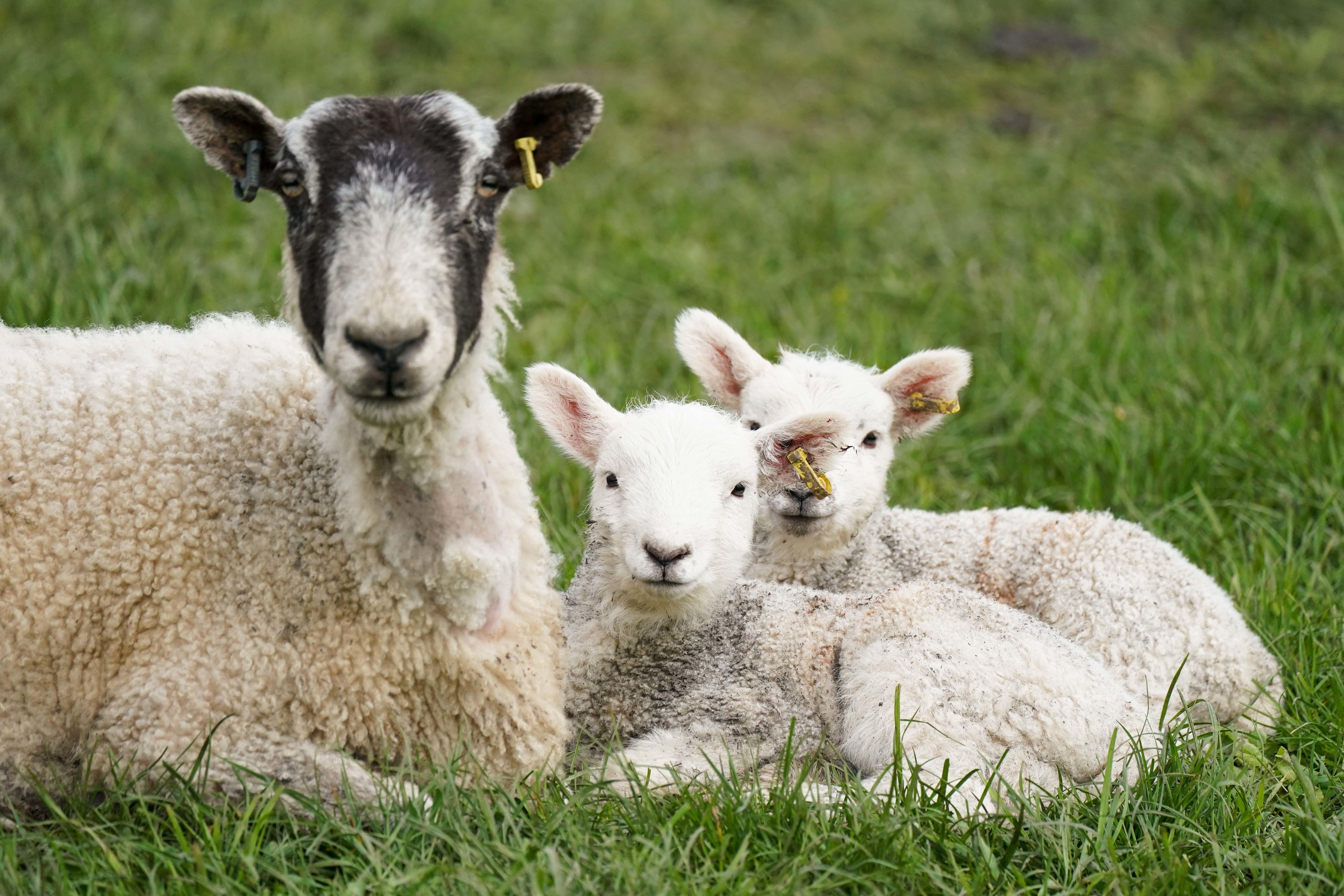Experts warn of ‘very high probability’ bluetongue will spread from Europe
A new strain of the animal disease, which is spread by midges, is expected to re-enter Britain through infected insects blown on the wind.

Your support helps us to tell the story
From reproductive rights to climate change to Big Tech, The Independent is on the ground when the story is developing. Whether it's investigating the financials of Elon Musk's pro-Trump PAC or producing our latest documentary, 'The A Word', which shines a light on the American women fighting for reproductive rights, we know how important it is to parse out the facts from the messaging.
At such a critical moment in US history, we need reporters on the ground. Your donation allows us to keep sending journalists to speak to both sides of the story.
The Independent is trusted by Americans across the entire political spectrum. And unlike many other quality news outlets, we choose not to lock Americans out of our reporting and analysis with paywalls. We believe quality journalism should be available to everyone, paid for by those who can afford it.
Your support makes all the difference.Farmers have been warned of a “very high” probability of a new strain of bluetongue being brought in through midges blown over from Europe.
A risk assessment for the animal disease in the wake of an outbreak which began in England last autumn warns the virus is highly likely to be introduced again from northern Europe where it is circulating.
Bluetongue is an animal disease that affects livestock including cattle and sheep, as well as goats, deer and llamas, with symptoms including a blue and swollen tongue, fever, reduced milk yield and in the most severe cases, death.
It does not affect humans or food safety.
The virus is spread through biting midges, and while there is no evidence bluetongue is currently circulating in midges in Britain, the Government warns the insects can be blown long distances on the wind from mainland Europe.
A new strain of bluetongue known as BTV-3, which emerged in the Netherlands in September 2023, was first identified in November in England.
Since then there have been 126 cases in the outbreak, seven sheep and 119 cattle, across four counties, Kent, Norfolk, Suffolk and Surrey.
It is the first outbreak of bluetongue in Britain since 2007, when farmers were also battling bird flu and foot and mouth disease which affected cattle after leaking from a laboratory in Surrey.
Now a risk assessment published by the Animal and Plant Health Agency (APHA), warns there is a very high probability of a new introduction of bluetongue virus of the new BTV-3 strain into Britain during 2024 through infected biting midges being blown over from northern Europe.
Given their proximity to northern Europe, where BTV-3 is being actively transmitted by midge populations, and wind patterns, counties along the south and east coasts of England, including Norfolk, Suffolk, Essex, Kent and Sussex, are considered most likely to be hit by the disease.
There is also a medium risk of another strain, BTV-8, being carried in by midges blown from northern France.
Biting midges are most active between April and November, and the timing of any potential incursion of the disease will depend on temperatures and wind patterns, officials said.
We are actively engaging with vaccine manufacturers on the development of a BTV-3 vaccine for use in the UK
Farmers are being urged to remain vigilant and monitor their animals frequently, while making sure their livestock and land and up-to-date contact details are registered with the APHA in case of an outbreak.
There is currently no vaccine in the UK for the BTV-3 strain of the virus, although a new vaccine has been approved for emergency use from the start of May in the Netherlands and Belgium.
Chief veterinary officer Dr Christine Middlemiss said: “Our robust surveillance systems show we have now entered the period where biting midges are more active, and we know that the likelihood of bluetongue virus entering Great Britain is increasing.
“Despite the increase in midge activity, the current risk of transmission has not changed, but I would urge farmers to remain vigilant and report any suspicions to the Animal Plant Health Agency.”
She added: “Bluetongue virus does not pose a threat to human health or food safety.”
Biosecurity minister Lord Douglas Miller said that once the risk of transmission increased, free bluetongue tests would be offered to livestock owners in high-risk counties.
He added: “We are actively engaging with vaccine manufacturers on the development of a BTV-3 vaccine for use in the UK.”
Here in the UK, livestock farmers are anxious to protect their livestock as the risk of midge incursion increases with the warmer weather
NFU president Tom Bradshaw said: “The impact of BTV-3 in the Netherlands has been devastating for many farmers, especially in sheep flocks.
“Here in the UK, livestock farmers are anxious to protect their livestock as the risk of midge incursion increases with the warmer weather.
“While we all know that a vaccine provides the long-term solution it is becoming increasingly clear that the Dutch BTV-3 vaccine won’t be authorised for use in the UK quickly enough to protect livestock this summer.
“Defra’s own risk assessment shows that bluetongue is highly likely to spread widely across the UK, therefore it’s imperative that Defra, vaccine manufacturers and the livestock sector work together to ensure a vaccine is authorised and available as soon as possible to help minimise the impact of this disease.”